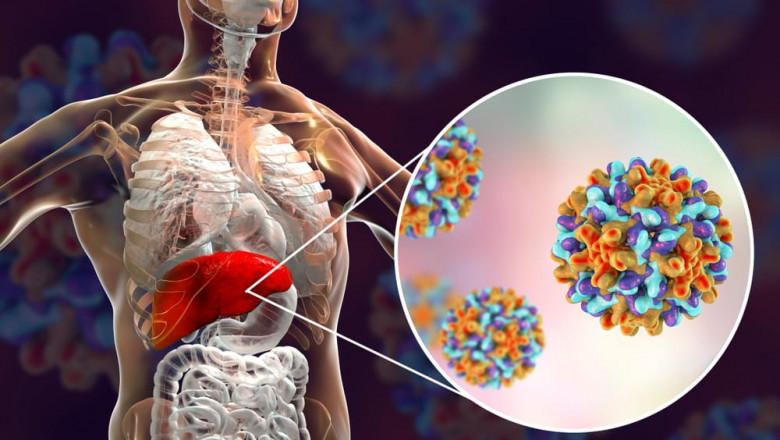views
The Serious Complications of Hepatitis B: Risks, Symptoms, and Prevention
Hepatitis B is a potentially life-threatening liver infection caused by the Hepatitis B virus (HBV). While some people recover fully, others develop chronic infections leading to severe complications. This article explores the dangerous complications of Hepatitis B, their symptoms, and preventive measures to safeguard your liver health.
Key Complications of Hepatitis B
1. Chronic Hepatitis B Infection
About 5-10% of adults infected with HBV develop a chronic infection, which persists for more than six months. Chronic Hepatitis B increases the risk of long-term liver damage, including cirrhosis and liver cancer.
2. Liver Cirrhosis
Prolonged liver inflammation from HBV can lead to cirrhosis, a condition where healthy liver tissue is replaced by scar tissue. This impairs liver function and can cause:
-
Jaundice (yellowing of skin and eyes)
-
Fluid retention (ascites)
-
Easy bruising and bleeding
-
Confusion (hepatic encephalopathy)
3. Liver Cancer (Hepatocellular Carcinoma)
Chronic HBV infection is a leading cause of liver cancer. Early detection is challenging because symptoms often appear in advanced stages. Warning signs include:
-
Unexplained weight loss
-
Abdominal pain and swelling
-
Loss of appetite
-
Nausea and vomiting
4. Fulminant Hepatitis (Acute Liver Failure)
A rare but deadly complication, fulminant hepatitis causes sudden liver failure. Symptoms develop rapidly and require emergency medical attention:
-
Severe jaundice
-
Mental confusion
-
Blood clotting issues
-
Coma
5. Kidney Disease (Glomerulonephritis)
HBV can trigger glomerulonephritis, an inflammatory kidney disorder. This may lead to:
-
Proteinuria (excess protein in urine)
-
Swelling in legs and face
-
High blood pressure
6. Hepatitis D (HDV) Coinfection
People with chronic Hepatitis B are at risk of Hepatitis D, a severe viral infection that accelerates liver damage. HDV only occurs alongside HBV and worsens outcomes.
Preventing Hepatitis B Complications
1. Vaccination
The Hepatitis B vaccine is 95% effective in preventing infection. The CDC recommends vaccination for:
-
Newborns
-
Healthcare workers
-
People with multiple sexual partners
-
Travelers to high-risk regions
2. Regular Screening & Monitoring
Chronic HBV patients should undergo:
-
Liver function tests (LFTs)
-
Ultrasound or FibroScan for liver damage assessment
-
Alpha-fetoprotein (AFP) tests for cancer screening
3. Antiviral Therapy
Medications like Tenofovir and Entecavir suppress HBV replication, reducing liver damage risk.
4. Lifestyle Modifications
-
Avoid alcohol to prevent further liver strain
-
Maintain a healthy diet (low-fat, high-fiber)
-
Practice safe sex to prevent HBV transmission
Conclusion
Hepatitis B complications can be life-altering, but early detection and proper management can significantly improve outcomes. Vaccination, regular check-ups, and a healthy lifestyle play crucial roles in preventing severe liver damage. If you suspect HBV exposure, consult a healthcare provider immediately for testing and treatment.














Comments
0 comment